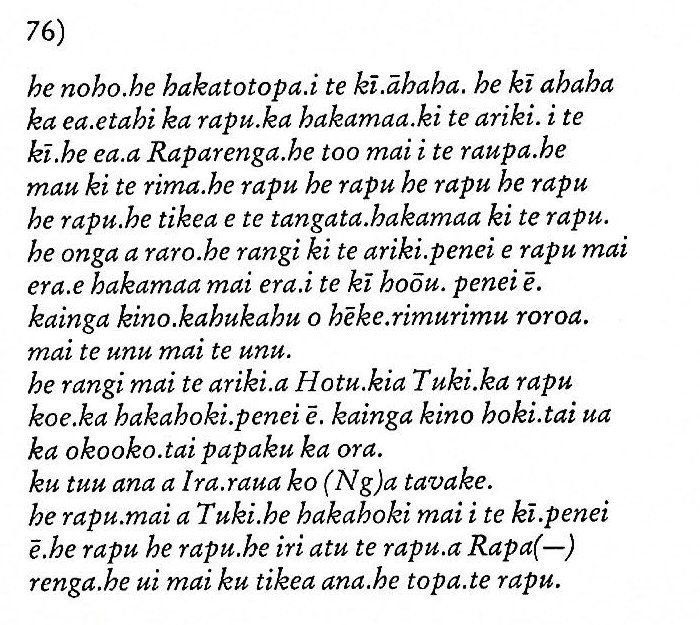
|
E:73 → 584 / 8 = 365
/ 5 → 40 (February 9) + 33 (→ Mira)
... On February 9 the
Chorti Ah K'in, 'diviners', begin the
agricultural year. Both the 260-day cycle and the
solar year are used in setting dates for religious
and agricultural ceremonies, especially when those
rituals fall at the same time in both calendars. The
ceremony begins when the diviners go to a sacred
spring where they choose five stones with the proper
shape and color. These stones will mark the five
positions of the sacred cosmogram created by the
ritual. When the stones are brought back to the
ceremonial house, two diviners start the ritual by
placing the stones on a table in a careful pattern
that reproduces the schematic of the universe. At
the same time, helpers under the table replace last
year's diagram with the new one. They believe that
by placing the cosmic diagram under the base of God
at the center of the world they demonstrate that God
dominates the universe. The priests place the stones
in a very particular order. First the stone that
corresponds to the sun in the eastern, sunrise
position of summer solstice is set down; then the
stone corresponding to the western, sunset position
of the same solstice. This is followed by stones
representing the western, sunset position of the
winter solstice, then its eastern, sunrise position.
Together these four stones form a square. They sit
at the four corners of the square just as we saw in
the Creation story from the Classic period and in
the Popol Vuh. Finally, the center stone is placed
to form the ancient five-point sign modern
researchers called the quincunx ... |
| ananake ko toona
titiro.ki runga ki te miro he ha(-) |
Oti and his
assistants took all of them on board the canoe and
left them there, the thirty-three [→ Mira] big
calabashes with the birds. |
| karere.atotoru
te kauatu.te kaha manu.he ho(-) |
| te moai.e
iri era te tangata ki
runga ki te |
The people
went on board the canoe, and bananas, yams, taro,
sweet potatoes, chicken, and also [tokoa]
pigs (?) and all kinds of [anakeanake] shoots
(huri) were added. |
| miro.ko te maika. ko
te uhi.ko te taro.ko te kumara. |
| ko te moa.ko te
kekepu. tokoa.ko te huri tokoa. |
| anakeanake te huri. |
| Iri,
1. To go up; to go in a boat on the sea (the
surface of which gives the impression of going up
from the coast): he-eke te tagata ki ruga ki te
vaka, he-iri ki te Hakakaiga, the men boarded
the boat and went up to Hakakainga. 2.
Ka-iri ki puku toiri ka toiri. Obscure
expression of an ancient curse. Vanaga. Iri-are,
a seaweed. Vanaga. |
| he ki a Matua.kia
Hotu. ka too (Crossed out: toa te hanau eepe) |
Matua said
to Hotu, 'Take along [ka too toa te hanau
eepe] [also, tokoa] the Hanau
Eepe and let them work [mo keukeu] the
land!' |
| tokoa te hanau
eepe.mo keukeu o tou kainga.he ra(-) |
| ngi.a Hotu kia
Teke.ka oho.ka too te tangata. |
Hotu called out [he
rangi] to Teke: 'Go along and bring |
|
E:74 → (392 + 348) /
10 → 80 - 6 (ono) |
|
kopu.
aririma te rau.ki runga
ki te maro. |
the 500
prisoners on board the canoe!'
He took all of them [tahi he mau] along,
led them on board the canoe, and left them there [he
hakarere].
For six days (po ono), mats (moenga)
were taken on board the canoe (i.e., the loading of
the canoe took six days). |
| he too tahi he mau
ki runga.ki te maro.he ha(-) |
|
karere.etahi
poō no. o te
moenga. i too ai |
|
ki runga ki te miro. |
| Kopu.
Heart, breast, paunch, belly, entrails; kopu
mau, stomach; kopu takapau nui, big
belly; mamae kopu, bellyache. T Pau., Mgv.:
kopu, belly, paunch. Mq.: kopu, opu,
belly, stomach, breast. Ta.: opu, belly,
intestines, spirit, intelligence. Churchill. Ta.:
opu, to rise, of the sun. Ma.: kopu, the
morning star. Churchill.
Turirima, elbow. ...
Fakataka
swims and swims, reaching another land. She goes
there and stays on the upraised reef in the
freshwater pools on the reef, and there delivers her
child, a boy child. She gives him the name
Taetagaloa. When the baby is born a golden
plover flies over and alights upon the reef.
(Kua fanau lā te pepe kae lele mai te tuli oi tū
mai i te papa). And so the
woman thus names various parts of the child
beginning with the name 'the plover' (tuli):
neck (tuliulu), elbow (tulilima), knee
(tulivae) ...
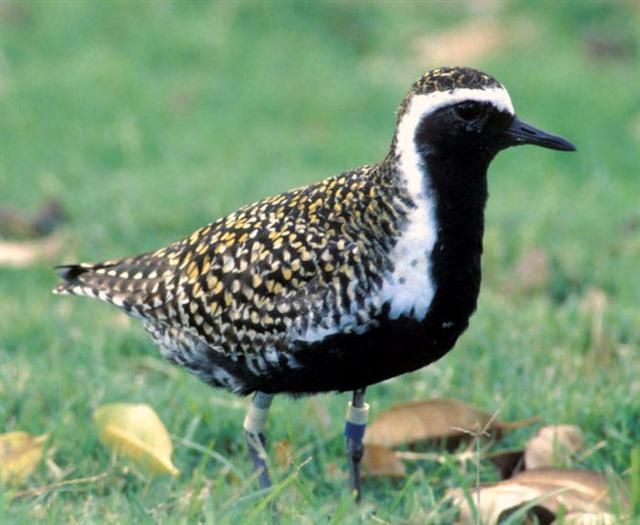
Ai. Aai 1. Who: interrogative pronoun used
in place of koai te mee ...: Aai
i-tu'u-mai-nei, e-haúru-ró-ana au? = Koai te mee
i-tu'u-mai-nei, e-haúru-ró-ana au? Who is it who
came here when I was sleeping? 2. Whose: genitive
pronoun. Vanaga. 1. (Ko ai) Who, which. 2.
Then. 3. Consequence. 4. (Hai). Churchill. |
|
he oho.mai te miro. o
Hotu.mai maori.ki |
Hotu's
canoe [te miro. o Hotu] sailed [he oho]
from Maori to Te Pito O Te Kainga. |
|
te pito o te kainga. |
|
i
te porua o te raa. o hora nui.i oho mai. |
It sailed
on the second day of September (hora nui). |
|
ai. |
|
o ava.rei Bua
(sic!).mai te rua painga. |
The canoe of the king (ariki
is used here incorrectly for tapairu
'queen'), of Ava Rei Pua, |
| Although
the Easter Islanders still cautiously kept all their
small stone and wood carvings in hiding, they did
reveal their own artistic talent and activity by
carrying forth colossal paina figures in the
presence of the Spaniards [1770]. These were
skilfully made light-weight dolls of superhuman
size, fashioned from painted bark-cloth stuffed with
branches, grass, and reeds. They were carried in
processions and erected at the side of old image
platforms, as if they represented some substitute
for the giant stone men of the Middle Period that
this historic or Late Period population was unable
to carve or erect. Agüera (Ibid., p. 95) gave
the following account of the paina figures,
after a description of the ancient stone statues of
which an unspecified number were still standing on
ahu: 'They have another effigy or idol
clothed and portable which is about four yards in
length: it is properly speaking the figure of a
Judas, stuffed with straw or dried grass. It has
arms and legs, and the head has coarsely figured
eyes, nostrils, and mouth: it is adorned with a
black fringe of hair made of rushes, which hangs
half-way down the back. On certain days they carry
this idol to the place where they gather together,
and judging by the demonstrations some of them made,
we understood it to be the one dedicated to
enjoyment ...(Heyerdahl 3) Der Cultus bestand in
Anrufung der Götter, deren Willen der Priester
erklärte, in Opfern an Lebensmitteln, auch an
Menschen, und in der Feier gewisser, zu bestimmten
Zeiten wiederkehrender Feste (rakauti), von
denen das erste im Früjahr 2 Monate dauerte, das
zweite im Sommer mit der Errichtung einer Pyramide
aus Zweigen (paina) endete, das dritte in den
Winter fiel; bei allen fanden Tänze, Gesänge, Spiele
aller Art statt. (Churchill: From 'Die Inseln des
stillen Oceans' by Carl E. Meinicke; zweiter Theil,
1876, p. 228.) Paina.
Human likeness, large doll (made in ancient times).
Vanaga. T. To make a noise. H. To sound, as in
breaking or tearing anything. Churchill.
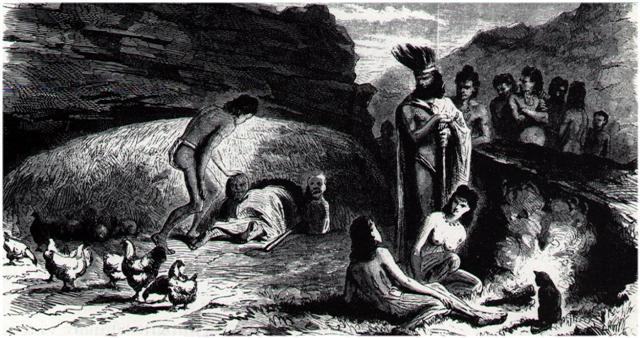 |
|
ku oho.takoa mai ana te
miro o te ariki |
also sailed on the
other side [ku oho tako'a]. |
|
i vaenga.i piri ai te
miro. o ava rei pua. |
They had
attached [i piri ai] the canoe of Ava Rei Pua
to the middle [i vaenga] of the canoe of Hotu
(i.e., a double canoe had been built for the long
voyage across the sea.)
The canoe of Ava Rei Pua and of Hotu were seen
near the (offshore) islets. |
|
ki te miro. o Hotu. |
|
a te motu.i
onga mai ai te miro. o
Hotu.o Ava rei |
|
pua. |
| Aro.
Face, front, side (of a figure); ki te aro o
..., to the front of ... Vanaga. Presence, body,
frontispiece; ki te aro, face to face. P
Pau.: aroga, the visage; ki te aroga,
opposite. Mgv.: aro, presence, before; i
te aro, in the presence of. Mq.: aó,
face, in the presence of, before. Ta.: aro,
face, front, presence, view. It is probable that
more than one word is confounded in alo. The
significations which appear in Southeast Polynesia
are most likely derived from a Tongafiti alo
and do not appear in Nuclear Polynesia. The alo
belly and alo chief which do occur in Nuclear
Polynesia are also probably Tongafiti, for in Samoa
and Tonga they are honorific and applied only to
folk of rank, a good indication of borrowing by the
Proto-Samoans from Tongafiti masters. Churchill. In
the Hawaiian group, the western portion or side of
an island was called 'the front', ke alo, of
the land, and the eastern side was called 'the
back', ke kua. The reason of such
designations must be sought in the fact of the
arrival of the inhabitants from the west. Fornander. |
|
i te
tahi
te angahuru marima o te raa.o ta(-) |
On the
fifteenth day of the month of October (tangaroa
uri) the canoe of Hotu |
|
ngaroa uri i tomo ai.te miro o Hotu.raua |
| Tahi.
Other; te tahi tagata someone else; te
tahi hoki... and others again...; te tahi...
te tahi..., some... others; te tahi atu,
the rest of them. Tahitahi, to scrape with a
sharpened stone. Vanaga. One, only, simple; te
tahi, next; e tahi, anyone; e tahi no,
unique, unity; e tahi e tahi, simultaneous. P
Mgv.: Mq., Ta.: tahi, one. Churchill. |
|
January |
31 |
31 |
|
February |
28 |
59 |
|
March |
1 |
60 |
|
31 |
90 |
|
April |
14 |
288 - 184 |
|
30 |
120 |
|
May |
31 |
151 |
|
June |
30 |
181 |
|
July |
31 |
212 |
|
August |
31 |
243 |
|
September |
1 |
60 + 184 |
|
29 |
273 |
|
October |
15 |
288 = 244 + 44 |
|
31 |
304 |
|
November |
30 |
334 |
|
December |
31 |
365 |
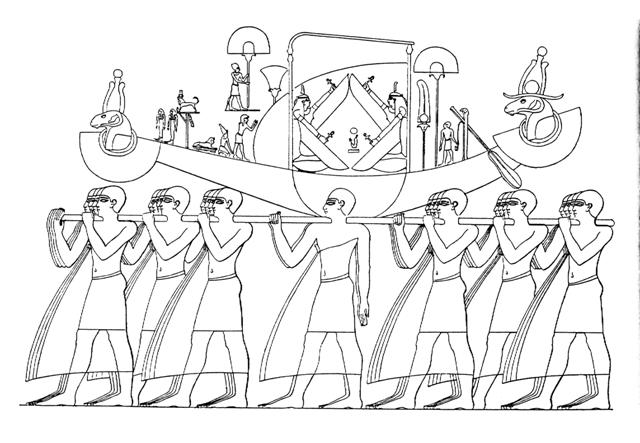 |
|
E:75 → 600 / 8 |
|
ko te miro a Ava rei
pua. |
and the canoe of Ava
Rei Pua landed. |
|
i te
angahuru marima o te raa.o tangaroa uri.i
te po. |
On the
fifteenth day of the month of October (tangaroa
uri), Nonoma left the house [he ea mai roto i
te hare] during the night [i te po] to
urinate outdoors [ki kaho.mimi].
At this point Ira called out [he rangi] to
Nonoma, 'Look at the canoe!'
Nonoma ran [he tahuti], he quickly went to
Te Hiringa Heru (a ravine in the side of the crater
Rano Kau) and looked around. There he saw the double
canoe way out near the (offshore) islets [i te
motu o haho], and the two (hulls of the canoe)
were lashed together. |
|
ana.he ea a Nonoma.mai
roto i te hare.ki kaho. |
|
mimi.he rangi mai a
Ira.kia Nonoma.e ui tau mi(-) |
|
ro.he tahuti he oho.a
Nonoma.he onga i te hikinga |
|
heru.i ka ui atu nei ko
te miro.i te motu o haho.e |
|
hakapiri ro a.ārurua. |
| Evidently
a pair of wovels close together was here written as
e.g. poō no = po-ono
(6 nights) and
ārurua = a aru-rua
(a pair held firmly).
Aru. Áruáru, reduplication of aaru:
to grab firmly. Vanaga. 1. To pursue. P Mgv.:
aruaru, to run after, to chase, to follow. Ta.:
aruaru, to pursue. 2. To raise in waves,
undulation. P Pau.: puhigaru, a bubble of
water. Mgv.: garu, foam, froth. Mq.: naú,
waves. Ta.: aru, billow, wave, flood. 3. (haruharu).
Churchill. |
|
he tahuti he hoki mai
ki mua ki te hare.he tuu he rangi.a |
He ran and
returned [he tahuti he hoki] to the front of
the house [ki te mua ki te hare]. He
arrived and called [he tuu he rangi] into the
house [a roto i te hare], 'Hey you! This
canoe has arrived during the night without our
noticing it!'
Ira asked [he ui] Nonoma, 'Where is the
canoe, which you say is lying out there (in the
water)?'
Nonoma's voice [te reo] came back [he
hakahoki]: 'It is out there (in the water) close
to the (offshore) islets! There it lies [e noho
mai nei], and the two (hulls) are lashed
together.' |
|
roto i te hare.he ro
korua ē.ku mou mai era ā tau miro |
|
nei.i anga po.ana.he ui
mai a Ira.kia Nonoma.ihē tau |
|
miro.e noho mai ena.he
hakahoki mai te reo o Nonoma.e |
|
i te motu o
haho.e noho mai nei.e
hakapiri ro ana.eruā |
|
miro. |
|
he ea.ā(corrected
to haho
from oono)
.he too i te raupā
rapu. |
The four of
them (corrected for 'the six of them') went out and
picked up [he too] leaves (on branches) to
give signals.
They picked them up, went and arrived at Te
Hikinga and saw the canoe.
Ira remained at the house [i roto ana i te
hare a Ira] after the four (corrected for 'the
six') had gone [i oho era] to Te Hikinga Vae
(sic). |
|
he mau he oho.hetu(-) |
|
u.ki te hikinga.he ui i
te miro.i roto ana i te hare a Ira. |
|
i oho era.ā
(corrected to haho
from oono)
ki te hikinga vae. |
| Haho.
Outside. Vanaga.Ha. 1. Four. 2. To
breathe. Hakaha'a, to flay, to
skin. Vanaga. 1. Four. P Mgv., Mq., Ta.: ha,
id. 2. To yawn, to gape. 3. To heat. 4. Hakaha,
to skin, to flay; unahi hakaha, to scale
fish. Mgv.: akaha, to take to pieces, to take
off the bark or skin, to strip the leaves off
sugarcane. 5. Mgv: ha, sacred, prohibited.
Mq.: a, a sacred spot. Sa.: sa, id.
Churchill. Ho. 1. Ho!, Oh! 2. Lest, on the
point of. 3. To deliver, to give up. Churchill.
Hiki. To flex the knees lightly, as used
to do the youths of both sexes when, after having
stayed inside for a long period to get a fair
complexion, they showed themselves off in dances
called te hikiga haúga, parading on a
footpath of smooth stones, with their faces painted,
lightly flexing their knees with each step. Vanaga.
Tail fin G (? hiku). Churchill. Hiki kioe
(Cyperus vegetus), a plant whose roots were
eaten during times of famine and the stems of which
were used for medicinal purposes. Barthel 2. Pau.:
Hiki. 1. To fondle. Mgv.: hiki, to
dandle. Ta.: hii, id. Mq.: hiki, id.
2. To flee. Mq.: hiki, flight. Pau.:
Fakahihiu, to scare away, Ma.: whiu, to
drive. Churchill. Mgv.: Hiki, to commence or
to finish mat weaving. Mq.: hiki, to finish
mat weaving. Churchill. ... The
brothers of Maui sat trembling in the middle of the
canoe, fearing for their lives. For now the water
was frothing and heaving, and great hot bubbles were
coming up, and steam, and Maui was chanting the
incantation called Hiki, which makes heavy
weights light ...
Heu.
Offspring of parents from two different tribes,
person of mixed descent, e.g. father Miru,
mother Tupahotu. Heuheu, body
hair (except genitals and armpits). Vanaga. 1.
Heheu; ivi heheu, the cachalot, bone
needle; hakaheu, spade, to shovel, to grub
up, to scratch the ground, to labor; rava
hakaheu, laborious, toilsome. 2. Hakaheu,
affair. Churchill. M. Heu, to separate, to
pull asunder; the eaves of a house; heu, a
single hair; hau. to hew; heru, to
comb; huru, hair on the body; down; feathers;
maheu, scattered; maheuheu, shrubs;
mahuru, scrub; heuea, to be separated.
Text Centre. Nonoma ran,
he quickly went to Te Hikinga Heru (a ravine
in the side of the crater Rano Kau) and
looked around. There he saw the double canoe way out
near the (offshore) islets, and the two (hulls of
the canoe) were lashed together.
Vae. Va'e:
Foot, leg; te va'e mata'u, te va'e maúi,
right foot, left foot. Va'e ruga, va'e raro,
quick and light, without detour (lit.: foot up, foot
down). Ka-oho koe ki a nua era va'e ruga va'e
raro, ina ekó hipa-hipa, hurry straight to your
mother, do not make any detours. Va'e pau,
misshapen foot, clubfoot. Vae, to choose.
Vaega, middle, centre; i vaega o, in the
middle of. Vanaga. 1. Foot, paw, leg, limb; vae
no roto, drawers; karikari vae, ankle. P
Pau.: vaevae, foot, leg. Mgv.: vaevae,
id. Mq.: vae, id. Ta.: vaevae, avae,
id. 2. Pupil. 3. To choose, elect, prefer, promote,
vote; vavae, to destine, to choose; vaea
(vae 2), pupil. Vaeahatu (vae 1
- ahatu): moe vaeahatu, to sleep
sprawling with legs extended. Vaega, center,
middle, within, half; o vaega, younger; ki
vaega, among, between, intermediate. P Pau.:
vaega, the middle. Mgv.: vaega, center,
middle. Mq.: vaena, vavena, vaveha,
id. Ta.: vaehaa, half. Vaehakaroa (vae
1 - roa): moe vaehakaroa, to sleep
with legs stretched out. Vaehau (vae 1
- hau 3), pantaloons, trousers.
Vaeherehere (vae 1 - here 1), to
attach by the paw. Vaerere (vae 1 -
rere 1), to run. Churchill. Ta.: 1. Timbers of a
boat. Ha.: wae, knees, side timbers of a
boat. 2. To share out. Sa.: vae, to divide,
to share. Ma.: wawae, to divide. Churchill. |
|
8 weeks |
CHRISTMAS EVE |
181 |
ST JOHN'S DAY |
5 |
SIRIUS |
43 |
AUG 12 (224) |
|
SITULA |
Aug 27 |
Sept 2 (245) |
Oct 15 (288) |
|
230 = 2 * 115 (→ Mercury) |
|
232 = 8 * 29 (→ Mercury) |
*342 (Situla) - *165
(Alkes) = *177 = *354 / 2. Therefore
another 6 days had to be given to the
Sun King (because 366 / 2 = 183). The
journey of the Explorers (planets) was
in the night and their 38 nights had to
be extended with 6 days in order to give
the double-canoe of the Sun the
necessary time-space.
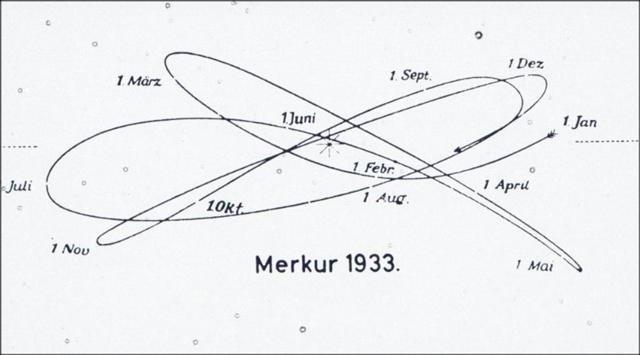
... Ganz ähnlich is der Name 'Gott von
Duazag' des Gottes Nabū
... zu erklären.
Er bezeichnet ihn als den Gott des
Wachtstums, welches als aus dem Osten
stammend betrachtet wird, weil die
Sonne, die das Wachstum bringt, im Osten
aufgeht.
Dass aber Nabū als Ost-Gott
aufgefasst wurde, hängt damit zusammen,
dass sein Stern, der Mercur, nur im
Osten oder Westen sichtbar ist ...
|
|
E:76 |
|
he noho.he hakatopa.i
te kī.āhaha. he kī ahaha |
The four
sat down [he noho]
and pondered [he
hakatopa] over the report [i
te kī] (of the result of the
explanation). Then the four said [he kī
ahaha], 'One has to get up [ka
ea.etahi] and let the king know the news
(about the conditions on Easter Island)!'
Raparenga [the Moon] got up, picked up the leaves,
took them in his hands, and waved, waved, waved,
[waved,] and waved. |
|
ka ea.etahi ka rapu.ka
hakamaa.ki te ariki. i te |
|
kī.he ea.a Raparenga.he
too mai i te raupa.he |
|
mai ki te rima.he
rapu he rapu he rapu he rapu |
|
he rapu.he tikea e te tangata.hakamaa ki te
rapu. |
|
... Nut, whom the
Greeks sometimes identified with Rhea, was goddess
of the sky, but it was debatable if in historical
times she was the object of a genuine cult. She was
Geb's twin sister and, it was said, married him
secretly and against the will of Ra. Angered, Ra had
the couple brutally separated by Shu and afterwards
decreed that Nut could not bear a child in any given
month of any year. Thoth, Plutarch tells us, happily
had pity on her. Playing draughts with the Moon, he
won in the course of several games a seventy-second
part of the Moon's light with which he composed five
new days. As these five intercalated days did not
belong to the official Egyptian calendar of three
hundred and sixty days, Nut was thus able to give
birth successively to five children: Osiris,
Haroeris (Horus), Set, Isis and Nepthys
...
|
|
he onga a raro.he rangi
ki te ariki.penei e rapu mai |
This was
seen by the man who understood signals; he looked
down and called out the following to the king: 'They
are waving, they are signaling the following
message: The land is bad; the shoots growing out of
the ground cannot spread because the algae-like
thicket is vry long when it is pulled out, when it
is ripped out (this means that the runners of the
yam roots that were planted are unable to prevail
against the heavy weeds, which hve to be pulled out
continually).' |
|
era.e hakamaa mai era.i
te kī hoōu. penei ē. |
|
kainga
kino.kahukahu
o hēke.rimurimu roroa. |
|
mai te
unu mai te unu. |
| Kino.
1. Bad; kikino, very bad, cursed; kona
kino, dangerous place. 2. blemish (on body).
Kinoga, badness, evil, wickedness; penis.
Kinokino, badly made, crude: ahu kinokino,
badly made ahu, with coarse, ill-fitting stones.
Vanaga. 1. Bad, wrong. T Pau.: kiro, bad,
miserable. Mgv.: kino, to sin, to do evil.
Mq.: ino, bad, abominable, indecent. Ta.:
ino, iino, bad, evil; kinoga (kino
1) sin; Mgv.: kinoga, sin, vice. 2. A skin
eruption, verruga, blotched skin, cracked feet T.
Churchill. Heke. (Heke), hakaheke,
to pull down, to overthrow. Mgv.: akaeke, to
overthrow, to vanquish; heke, to fall down,
to fall to pieces: akaheke; akahekeheke,
to demolish. Mq.: heke, to crumble, to fall
down; hakaheke, to demolish, to pull down.
Churchill. Kai heke, hakaheke, to
deflower.
Kahukahu o heke, an octopus hiding in his
ink. Mq.: ve'eve'e
'tentacules du heke'. Barthel 2. Pau.:
Heke, to purge. Mgv.: heke-toto,
hemorrhage. Ta.: hee, to purge. Mq.: heke,
to drip. Ma.: heke, id. Pau.: Hekeheke,
elephantiasis. Ta.: feefee, id. Mq.: fefe,
id. Sa.: fe'efe'e, id. Mgv.: Heke,
eke, octopus. Ta.: fee, id. Mq.: heke,
feke, fee, id. Sa.: fe'e, id.
Ma.: wheke, id. Ta.: Hee, to slide, to
swim. Sa.: se'e, to slide, to shoot the
breakers. Ha.: hee, id. Mq.: Hee oto,
to cut. Sa.: sele, id. Ha.: helehele,
id. Churchill. Ma.: 1. Migrate. Islands of History.
2. Rafter. Starzecka.
Unu.
1. To drink; unuga, the act of drinking. 2.
To pull weeds, grasses. 3. To pluck; ka-unu te
huruhuru o te moa! pluck the chicken's feathers!
Únu-únu, to bask in the sun (ki te raá),
to warm oneself by the fire (ki te ahi ).
Vanaga. To drink, liquor. Unuga, to drink.
Hakaunu, to slake thirst. Hakaunuora, to
water. P Mgv.: unu, to drink. Mq., Ta.:
inu, id. Unuvai, to drink water; hipu
unuvai, drinking glass. Churchill. |
|
he rangi mai te ariki.a
Hotu.kia Tuki.ka rapu |
King Hotu
called [he rangi] to Tuki, 'Signal and answer
[ka rapu koe.ka hakahoki] the
following: The homeland is bad too, (because there)
the flood [tau ua] brings destruction and the
low tide [tai papaku] brings relief (this is
a reference to the losses cused in Hiva by the
rising of the water, or rather, by the subsidence of
the land).' |
|
koe.ka hakahoki.penei
ē. kainga kino hoki.tau ua |
|
ka okooko.tai papaku ka
ora. |
| ... There
exists a surprisingly developed terminology for
distinguishing the phases of the tides: tai
pâpaku, low tide; ku-gúgú-á te tai, tide
at his lowest, literally 'the sea has dried up';
he-ranu te tai, when the water starts rising
again; this is a strange expression, since ranu
means 'amniotic liquid,' the breaking of the
waters which precedes birth; in this phase of the
tides the fish start coming out of their hiding
places and swim to the coast in search of food;
tai hahati, rising tide; tai hini hahati,
tide as it continues rising; tai u'a, tai u'a
parera, when the tide has reached its high;
tai hini u'a, tide all throughout its full
phase; tai hori, tide as it starts receding;
tai ma'u, tide during its decreasing phase,
right until it becomes tai pâpaku again;
tai raurau a riki, the slight swell, or
effervescence of the sea at a change of the moon ... |
|
ku tuu ana a Ira.raua
ko (Ng)a tavake. |
(In the meantime) Ira
and Nga Tavake had arrived. |
|
he rapu.mai a Tuki.he
hakahoki mai i te kī.penei. |
Tuki
signaled and answered the message in this manner -
he waved and waved. The signal arrived up (at the
cliffs) where Raparenga was. He looked out and
watched for it. Then the waving stopped (?). |
|
ē.he rapu he rapu.he
iri atu te rapu.a Rapa(-) |
|
renga.he ui mai ku
tikea ana.he topa.he rapu. |
|
Topa. 1. To
bend down, to drop to the ground; to fall on a
certain date. 2. To stop doing something, to drop;
ina ekó topa taau aga, do not stop, keep
doing your work. 3. To remain, to be left over, to
be unfinished; he topa te kai, the food is
not finished, there is some left. 4. To come to
one's memory; i te aamu he topa te vânaga tûai,
in the legends old words come to memory. 5. To
remember, to reflect (with mana'u as
subject); e-topa rivariva tokorua mana'u ki te
me'e nei, let the two of you think carefully
about this thing. Vanaga. 1. Wine; topa tahaga,
id. 2. To fall in drops, to descend, to go down, to
abdicate; topa iho, to fall; hakatopa,
to knock down, to cause to fall; hakatopa ki raro,
to knock down, to subjugate. 3. Childbirth,
abortion; topa te poki, to lie in. 4. A
feast, to feast. 5. To arrive, to result; topa
rae, newcome; topa iho, to come
unexpectedly; topa ke, to deviate; topa no
mai, topa hakanaa, topa tahaga,
mau topa pu, unexpected; topa okotahi,
solitary; hakatotopa, to excite, to foment.
6. Bad, low, cheap, failure; igoa topa,
nickname; ariga topa, sinister, sly,
ill-tempered, to hang the head; hakatopa, to
disparage; hakatotopa, irresolute. 7. (Of
upward movement) topa ki raro, to scale, to
surpass; hakatopa ki te ao, to confer a
dignity; hakatopa ki te kahu, to spread a
sail; hakatotopa, to make a genealogy.
Churchill. |
The repeated wavings (waves) presumably were alluding to the
upraised reef where the Sea was breaking and Land ahead was
about to be born.
...
Fakataka
swims and swims, reaching another land. She goes
there and stays on the upraised reef in the
freshwater pools on the reef, and there delivers her
child, a boy child. She gives him the name
Taetagaloa ...
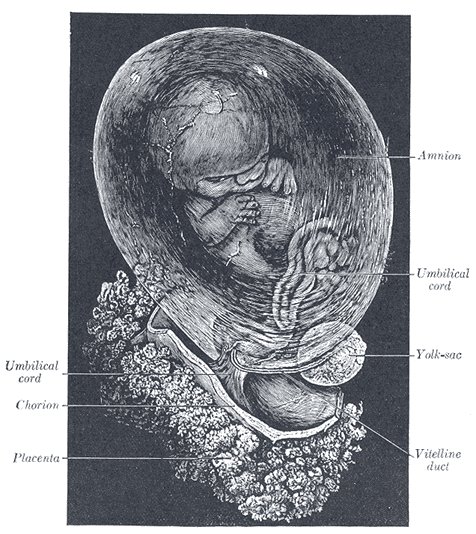
|





